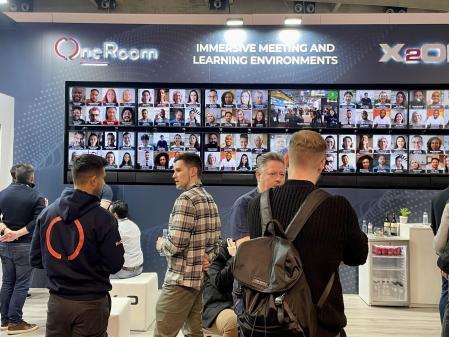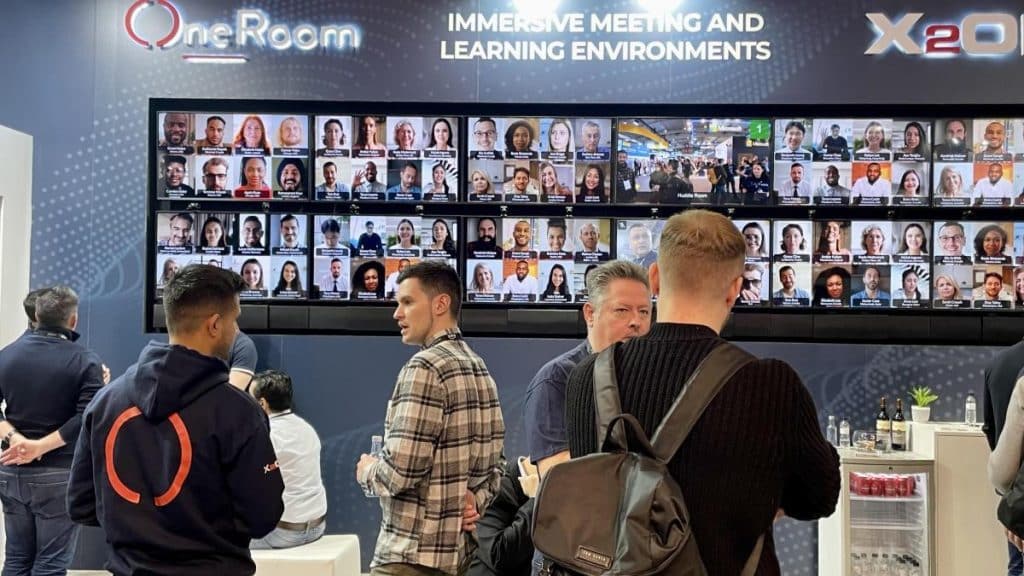In the last edition of the Barcelona audiovisual fair ISE (Integrated Systems Europe) a paradoxical situation was experienced: hundreds of people milled every day around the stands of companies that promote virtual meetings, such as Zoom, BlueJeans or Google Meets.
All these visitors were there doing what is usually done at fairs, that is, getting to know the product, negotiating, buying, browsing, flirting or simply spending time in case a canapé and a glass of cava falls at the stroke of noon.
The contradiction was evident: wasn’t it taken for granted in the midst of a pandemic that videoconferencing was going to put an end to face-to-face fairs forever? In this sense, in some media articles came to appear condemning cities, such as Barcelona, to a painful decline, which depend to a large extent on the economy of the visitor, that is, tourism, fairs and congresses. “What company is going to spend money sending its executives to a fair if you can do the same without leaving the office?”

Attendees at the ISE fair, in front of the stand of a videoconferencing provider
Miquel Molina
How then to explain this coincidence in the same physical space of the megascreens where videoconferences were held (see the photo) with the massive attendance of trade fair visitors?
The success of large face-to-face fairs refutes one of the axioms of the pandemic
The explanation, in part, must be sought in recent news such as the announcement by the CEO of Zoom, Eric Yuan, of the dismissal of 1,300 employees, which represents 15% of the workforce. The manager alluded to the global economic crisis, but introduced a concept that, although it is music to the ears of most people, is a bad omen for a sector like his: Yuan spoke of “transition to a post-pandemic world” .
Similar decisions cannot be ruled out by other virtual meeting software providers, like Zoom undergoing this transition to a world without a mask. In short, it will be necessary to resize a sector doped by covid-19 but which, in any case, even if it has to lower its expectations, has indeed come to stay.
In parallel, the recent success of events such as ISE itself or Fitur (and the foreseeable Mobile) invites us to think that more pandemics will be needed to end the habit of traveling and maintaining face-to-face relationships. In fact, one of the areas in which congress organizers are now focusing is leisure after work.
In the case of Barcelona, they have done so by inviting the city’s prestigious festivals to liven up the drinks served at the venue at the end of the day with music. Something that videoconferencing facilitators will never be able to compete with, no matter how sophisticated their virtual rooms are.
read also


